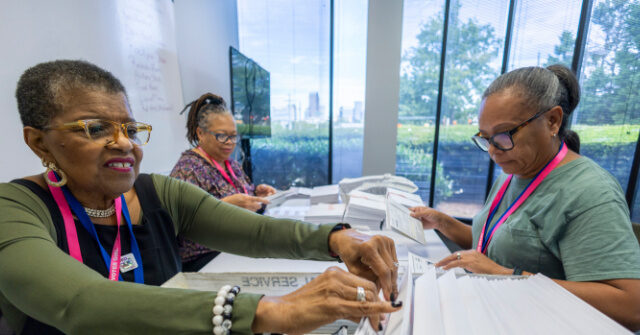Republican leaders are intensifying their initiatives to safeguard American ballots and GOP candidates from the turmoil brought on by illegal immigration. According to Kyle Brosnan, chief counsel for the Oversight Project at The Heritage Foundation, the Republican National Committee and conservative legal circles are significantly better prepared now than they were during the 2020 elections. Brosnan notes a growing acknowledgment within the party that active engagement in election lawfare is crucial, which has resulted in a preparation level he considers “light years ahead” of previous efforts. This proactive stance is underscored by Republican lawyers successfully compelling Michigan’s highest court to uphold anti-fraud standards in absentee voting, as well as GOP governors undertaking measures to cleanse voter registration lists.
The mission of the Oversight Project involves conducting investigative journalism and disseminating this information to both the public and policymakers. Brosnan highlights a specific instance from Arizona in which an undercover video captured a Spanish-speaking man proposing to assist an undocumented immigrant in registering to vote. This revelation points to a broader concern regarding the intersection of migration and electoral integrity, where illegal registrations could further complicate the political landscape. Brosnan articulates that the grassroots movement among conservatives is increasingly dissatisfied with the electoral changes made for the 2020 elections, raising extensive questions about their execution and legitimacy.
Amidst these challenges, emerging Republican figures are confronting the real issues stemming from illegal immigration. Brosnan observes a generational shift among Republicans in Congress, with a growing recognition that unchecked mass migration has adverse effects on the country. He also notes the difficulties this creates, as pertinent discussions around election integrity have been framed by the left as conspiratorial, thereby alienating those who seek to promote public understanding of electoral issues. Brosnan insists that the evidence presented through their investigative work showcases the presence of noncitizens attempting to register and vote, thus necessitating serious dialogue about electoral safeguards.
Recent voter-roll cleanups in states like Texas and Virginia have revealed the extent of the problem, with thousands of noncitizens being purged from voting lists. The 2020 election highlighted the stakes in these matters, as Biden secured victories in crucial battleground states by narrow margins, which may have been influenced by the presence of illegal votes. Estimates suggest that the population of illegal immigrants in the U.S. hovers around 15 million, highlighting the potential scale of the problem concerning electoral participation.
Furthermore, Brosnan identifies Democratic-backed non-profit organizations as critical players in this landscape, alleging they actively assist illegal immigrants in registering to vote. The organization of mail-in ballots raises concerns about integrity, as these ballots can be sent to home addresses where multiple families reside or even to vacant properties, allowing opportunities for vote harvesting. Brosnan emphasizes the physical manifestation of this issue, where identifiable patterns emerge from address tracking, revealing suspiciously high registration numbers tied to certain locations, such as homeless shelters or abandoned lots.
Ultimately, Brosnan warns that once ballots are mailed, the chain of custody becomes uncertain, casting doubt on whether they are counted accurately or responsibly. The implications of these practices might undermine the electoral process, particularly in close races where every vote holds significant weight. As the Republican Party escalates its efforts to confront these challenges, a critical conversation about election integrity is unfolding, thereby emphasizing the pressing need for reforms and heightened awareness surrounding voter registration and the influence of immigration on the electoral system.

